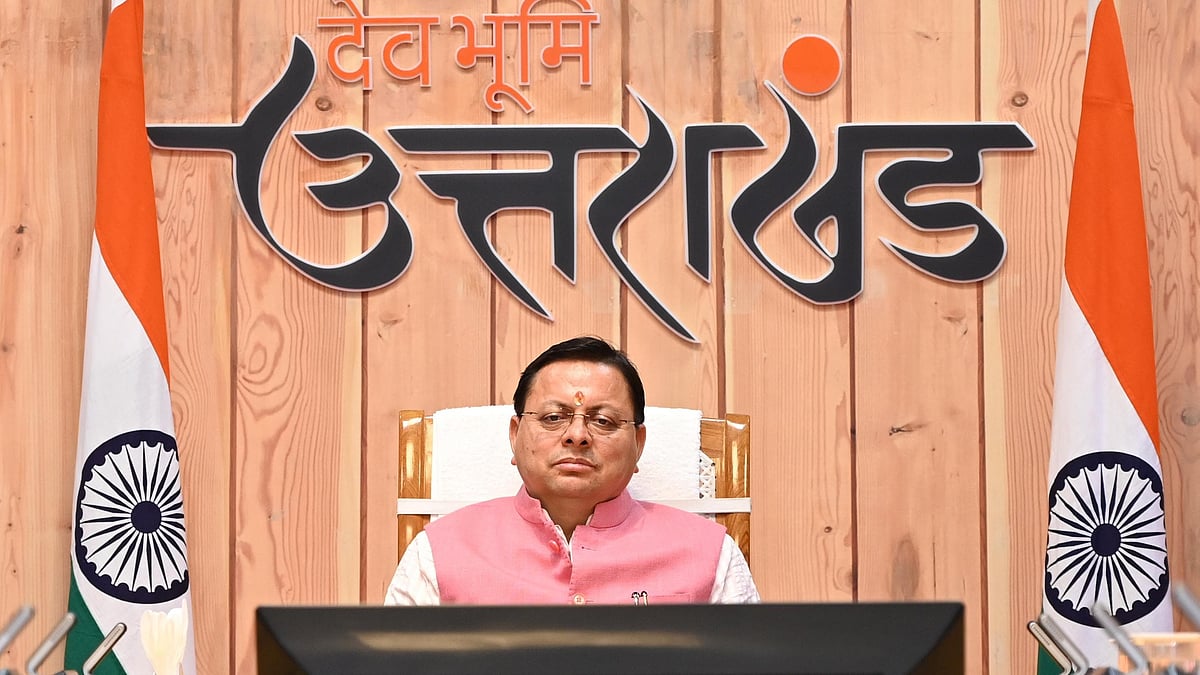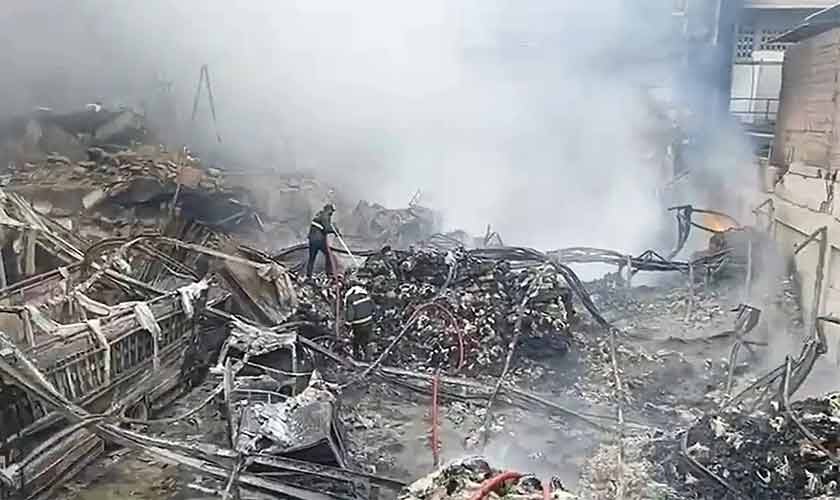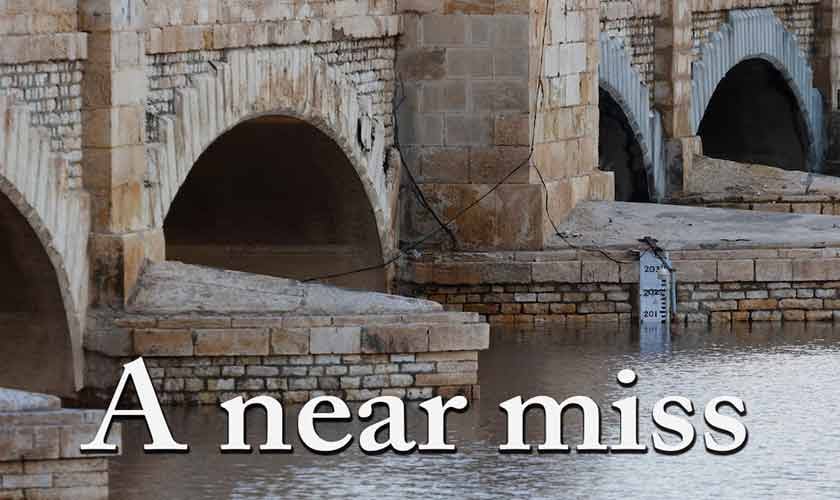Uttarakhand has been battling its worst floods in a century. On Tuesday morning, its capital city, Dehradun, was battered by a cloudburst that has left over 18 dead and several missing. The deluge destroyed key roads and bridges, including the crucial link road to Mussorie, Maldevta, and Rishikesh. Floodwater and debris have submerged several homes and business complexes, adding to the devastation.
On Thursday morning, the district of Uttarkashi was hit by yet another cloudburst, wreaking havoc in Chamoli. Townships like Dharali, Harsil, and Tharali stand destroyed. Rivers across the state are in spate, while electricity and water connections have been disrupted across this hill state. With roads destroyed, provisions are running low in several towns.
The flooding of rivers is especially ominous because, in Dehradun alone, 70 percent of the residents have built illegal homes on riverbeds. This reckless encroachment exacerbates the devastation during such calamities.
One would imagine Chief Minister Pushkar Singh Dhami has his hands full, given that his state has been bruised by a string of deadly calamities over the past few months. However, right in the middle of this devastation and misery, Dhami has announced a string of legislations that seem completely uncalled for. The timing is so inappropriate that it makes a mockery of these two amendments.
The first amendment relates to making the anti-conversion law more stringent. The Uttarakhand Freedom of Religion Act was introduced in 2018 and amended in 2022 to increase the punishments. Forceful conversion was made a cognisable and non-bailable offence with a jail term of five years and a fine of Rs 50,000.
On August 13, 2025, the law was made even more stringent. Initially, forced religious conversion carried a punishment of ten years; now, it has been increased to life imprisonment. Additional clauses in this fresh amendment state that any attempt to convert a person to another religion using the lure of jobs, money, or other “gifts” would be considered forced conversion and attract punishment from seven to 14 years.
A “false promise of marriage” or hiding one’s religion with the intention of marriage could lead to imprisonment from three to 10 years and a fine of Rs 3 lakh.
Perhaps the most frightening aspect of this amendment is that an accused person can be arrested without a warrant, and bail would be granted only if the court is convinced of the accused’s innocence and the improbability of reoffending.
One must ask: how many people have been booked under this anti-conversion law since 2018? The answer is not even a handful. In 2022, police registered two separate cases against four individuals under the Act.
In one case, a man and his two accomplices were booked for converting a 26-year-old woman and her two minor sons to Hinduism and then forcing her to marry a Hindu man in Dehradun. In another case, an unidentified person was booked for influencing a Hindu man on an online platform to convert to Islam, but this individual has not been identified to date.
Given the scarcity of such cases, what was the need to bring yet another amendment to this already strict law—and that too, right in the middle of an ongoing calamity?
The other amendment only serves to reinforce the notion that our hill state is drifting towards becoming a police state. The Uniform Civil Code Amendment 2025 has been introduced to impose even tougher penalties on those who enter into live-in relationships.
Now, a married person entering into such a relationship could face up to seven years in jail along with a fine. The law also makes live-in arrangements through force, coercion, or fraud punishable with sentences up to eleven years.
Shockingly, the registrar general has been empowered to annul registrations related to live-in relationships, marriage, divorce, and inheritance.
As all aspects of our lives are being swept under the Hindutva embrace, it is not surprising that all minority institutions—whether run by Sikhs, Jains, Christians, Parsis, or Buddhists—have been ordered to seek affiliation with the state education board for minority recognition through a new state authority, or else face closure.
This move is especially surprising given that these schools have been operating with distinction for more than a century. The purpose of this directive appears to be to enforce the Uttarakhand School Board curriculum rather than allow these institutions the choice of adopting CBSE, International Baccalaureate, or ICSE syllabi.
Chief Minister Dhami appears to be pushing this Hindutva agenda to divert attention from his obvious administrative failures. Now, the Hindutva agenda is being implemented not only through Parliament but at an even faster pace through state legislatures.
Opposition parties view these amendments as part of a recurring pattern. Just months ago, the Dhami government carried out a renaming drive, changing the names of several places: ten in Haridwar district, two in Nainital, and one in Udham Singh Nagar.
Officials claimed these changes aimed to restore cultural heritage, but the opposition believes this move is an attempt to polarize voters by targeting names linked to Islamic history. It is seen as another attempt to distract people from corruption allegations against the government.
Dhami is continuing his communal agenda of converting Uttarakhand into a Hindutva laboratory. He believes these moves help consolidate his vote base, which explains his disinterest in introducing reforms to eliminate poverty or improve the poor state of education in the region.
However, the relentless environmental disasters that the state has endured over the past five months have shattered this malicious propaganda. No amount of flood relief will bring back the lives of the hundreds who have died since then.
This devastation has also critically affected agriculture and tourism, given the large-scale destruction of hotels, guest houses, and infrastructure. Yet, the government shows no signs of learning.
If the government continues with its present model of “development,” it seems unlikely Uttarakhand will be able to recover fully from this calamity.
Adding to concerns, the Dhami government has now proposed constructing a massive elevated corridor in Dehradun on the riverbeds of the Rispana and Bindal rivers, aiming to decongest traffic at a cost of Rs 6,200 crore.
Both these rivers are currently flowing in full fury, and further construction on their beds will only worsen the impact of floods, with the corridor at risk of collapse in the coming days.
What Uttarakhand really needs are scientific mitigation measures—not more construction.
*Rashme Sehgal is an author and independent journalist.*
https://www.freepressjournal.in/analysis/uttarakhand-floods-and-controversial-legislation-cm-pushkar-singh-dhami-faces-criticism-amid-crisis



